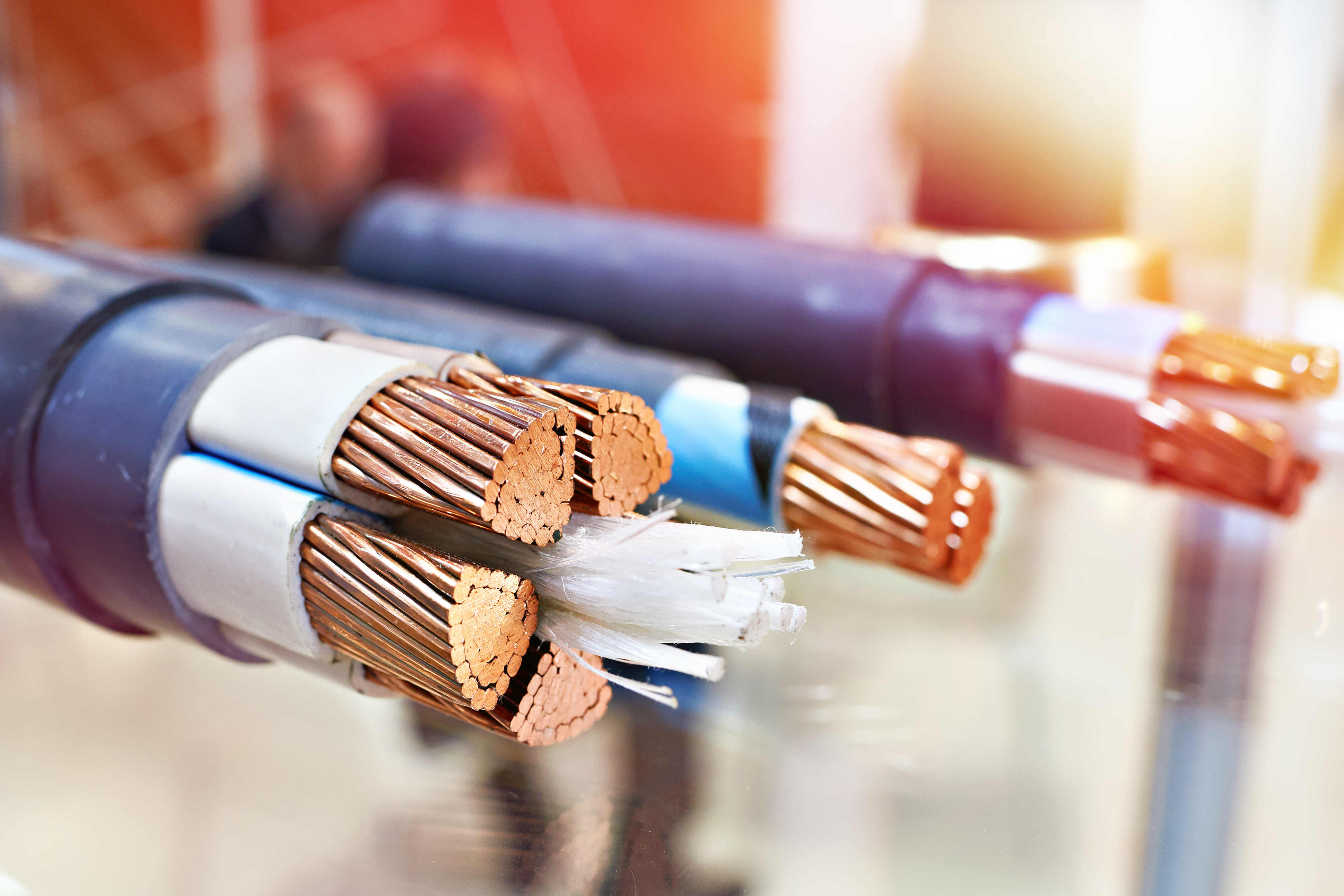

XLPE Power & Control Cables
Why XLPE Cable ?
Thermoplastic Power Cable (i.e. PVC Power Cable) ever since its introduction in low tension distribution network in mid - sixties failed to satisfy utilities and industrial users because of its may inherent limitations such as low power rating, poor emergency overload capacity, poor resistance to surge currents, thermoplastic nature , comparatively poor insulation resistance, shorter life with susceptibility to thermal degradatiuon, and though claimed to be moisture resistant absorbed considerable amount of moisture on long time exposure to lower the dielectric properties alarmingly. Utilities voidced their grievances in many forums agaisnt thermoplastivc cables which they were forced to use because of ban imposed by the Government on use of PILC cable in distribution network due to high import content of this cable.
M/s SUYOG ELECTRICALS LTD., decided to introduce XLPE Cable for Medium and Low voltage distribution network to provide utilities and industrial users a cable which combines the advantages of PILC and PVC Cables totally eliminating their demerits. Total installed cost of this cable is also much lower than that of PILC or PVC Power Cable. This cable is totally indigenous as XLPE' compound is now being manufacture by SUYOG ELECTRICALS LTD . in their newly installed modern microprocessor controlled compounding plant.
In fact 1.1 KV XLPE Cable is the most economic solution for low tension power distribution with high efficiency and total reliability . Utilities and industrial users will find in this cable a realisation of their ling elusive dream of an ideal cablke for low tension power distribution system.
Specifications
These cables are manufactured and tested as per national / international standards and also as per specific requirement of customer. Dimension of cables conforming to IS:7098/(Part-1)/1988 are given in table 4 to 12.
Current Ratings
Comparative data for current ratings and voltage drop/amp/m for 1.1 KV XLPE and PVC Power Cables are given in table - 13 under standard conditions. From this it will be observed that for equivalent power rating one size lower 1.1 KV XLPE cable may be used as substitute for PVC cable provided slightly higher voltage drop can be tolerated. Current rating, short circuit rating and rating factors for 1.1 kv XLPE Cable are given in Table 14 to 22
Applications
Besides being ideal for general purpose distribution 1.1 KV XLPE cable will be specially advantageous for use in steel plants, power station wiring, chemical plant wiring, under water wiring, wiring for mines etc.
Note of Caution
Do not use PVC sheathed cables where it is likely to come in contact with sulphuric acid , highly chlorinated hudro carbon cresylic acids, pyridine, ketones & caprolactum.
Technical Advice
We welcome enquiries on cable engineering problems and get them solved for you through our design and development staff and assist you in providing even design for cables to suit your particular requirement.
Advantages of XLPE cable as compared to thermoplastic cable are listed below:
Conductor: Copper or Aluminium conductor conforming to IS:8130/1984 - solid circular, stranded circular, compacted circular, stranded shaped.
Insulation: Crosslinked polyethylene (XLPE)
Inner sheath: Unvulcanised rubber or Thermo-Plastic Material compatible with thermal rating of insulation.
Armour: Galvanized steel wires / Flat strips
Outer sheath: PVC
Note: For Cable with improved Fire performance the sheath shall be specially formulated to meet the requirement of Flame Retardant (FR) or Flame Retardance with reduced halogen evolution and smoke categories (FRLS)
No special skill is required for jointing and termination of 1.1 KV XLPE cable. For jointing and termination any of the following standard methods may be employed:-